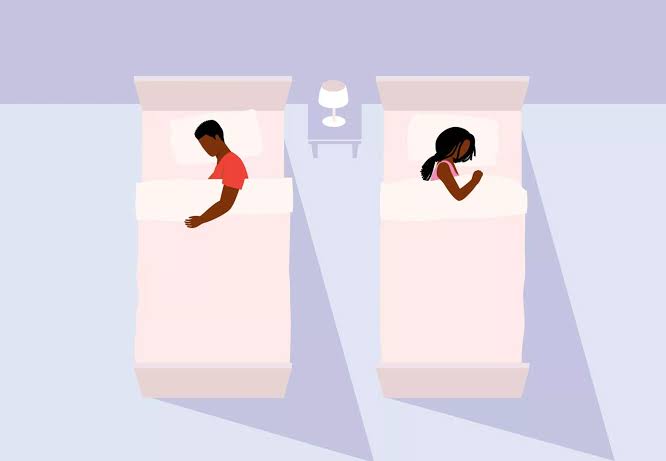What is sleep divorce and why it might be the key to improving your relationship

What is sleep divorce and why it might be the key to improving your relationship
A sleep divorce involves partners opting to sleep in separate rooms instead of sharing a bed at night.
At first glance, the phrase “sleep divorce” may suggest issues within a relationship. However, it actually describes a growing trend among couples seeking to enhance both their sleep quality and their relationship dynamics.
The phenomenon of sleep divorce is on the rise as couples increasingly value the quality of their sleep. Sleep divorce refers to the decision made by couples to sleep apart in order to enhance their overall sleep experience. This trend is becoming more common as individuals recognize the detrimental impact that inadequate sleep can have on both their health and their relationships.
According to the 2023 AASM Sleep Prioritization Survey, almost half (42%) of Americans do not modify their sleep habits to accommodate their partner.
A survey found that one-third of adults (33%) adjust their sleep schedules, either going to bed earlier or later, to align with their partner’s routine.
Men are significantly more inclined to use a silent alarm, with 25% doing so compared to just 8% of women, to avoid waking their partners. Interestingly, a majority of older Americans (60%) aged 55-64 do not alter their sleep habits for their significant others.
Among age groups, Millennials (ages 27-42) are the most prone to modifying their sleep patterns, with 40% going to bed at different times than they prefer and 24% occasionally opting to sleep in a separate room. Following them, Gen X (ages 43-58) shows that 29% adjust their sleep schedules, while 19% sometimes choose to sleep apart.
Baby Boomers (ages 59-76) and the Silent Generation (ages 77 and older) tend to be more resistant to changing their sleep habits, with 65% and 75% of them, respectively, reporting that they do not make any modifications.
Sleeping separately can minimize disruptions such as snoring, insomnia, or differing sleep patterns, resulting in improved rest. This arrangement can also alleviate relationship stress by reducing conflicts stemming from lack of sleep.
Additionally, having separate sleeping spaces offers greater personal space, enabling each partner to enjoy a more comfortable night’s sleep.
Is a sleep divorce the right choice for you?
Couples may consider a sleep divorce when one or both individuals face difficulties with sleep, feel persistently irritable, or suffer from significant fatigue. If sleepless nights make someone feel like a walking zombie, it might be time to reassess sleeping arrangements.
This decision should be made through open communication, focusing on what benefits both partners. Additionally, couples can seek advice from a healthcare professional for a sleep study to identify any potential sleep disorders.
Emphasizing the importance of proper sleep habits and effective stress management can be beneficial. Instead of being preoccupied with societal norms or stereotypes, couples should concentrate on practical approaches that improve their overall health and happiness.
Choosing to sleep separately does not indicate a deficiency in love. Rather, it allows both partners to obtain the necessary rest to sustain a fulfilling and joyful relationship. Achieving the right equilibrium is essential for success in this arrangement.












